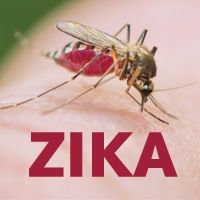Article
Officials Press for Zika Virus Vaccine, Advise Women to Avoid Pregnancy
Author(s):
The Zika virus doesn’t look like it’s going anywhere, and officials have gone as far as advising women not to get pregnant in order to avoid potential birth defects.

The Zika virus doesn’t look like it’s going away, and officials have gone as far as advising women not to get pregnant in order to avoid potential birth defects. Today the US Centers for Disease Control and Prevention (CDC) added more countries to a list of places where Zika is a travel hazard.
The outbreak began in Brazil in May 2015 and has continued to expand to other countries, such as Puerto Rico, before making its way to the United States on January 12, 2016. There is no preventive vaccine or specific treatment for this mosquito-borne illness, and its symptoms, including fever and rash, are similar to many others including dengue and chikungunya. In 80% of cases, patients have no symptoms. Confirming a diagnosis requires expensive testing.
A major concern associated with Zika is microcephaly, a condition where infants are born with smaller-than-normal head size and brains. An instance of microcephaly occurred in a Hawaiian newborn after a pregnant woman traveled to El Salvador. In fact, there are currently 96 pregnant women in El Salvador who are suspected of having Zika, and officials are addressing it, in part by asking women to avoid pregnancy.
“We’d like to suggest to all the women of fertile age that they take steps to plan their pregnancies, and avoid getting pregnant between this year and next,” said Deputy Health Minister Eduardo Espinoza. Officials in Colombia, which has the second highest Zika infection rate after Brazil, are advising women to delay pregnancy for six to eight months. Jamaican officials are doing the same, asking women to put off pregnancy for six to 12 months.
- MD Magazine is on Facebook, Twitter, Instagram, and LinkedIn!
The CDC is concerned about another condition as well — Guillain-Barré syndrome. Although rare, people with Zika have reported this muscle weakening, potentially paralyzing disorder.
Developing a vaccine for the Zika virus has become a top priority.
“I’ve made it clear that we want to put a full-court press. I’m saying, ‘Folks, this is it, all hands on deck for Zika, this is really important.’ We are rapidly pushing,” Anthony Fauci, MD, director of the National Institute of Allergy and Infectious Diseases, part of the National Institutes of Health (NIH), told TIME.
On January 22, the CDC added eight more countries on the travel alert:
- Barbados
- Bolivia
- Ecuador
- Guadeloupe
- Saint Martin
- Guyana
- Cape Verde
- Samoa
These countries add to the initial list for Level 2 travel alert that was issued on January 15:
- Puerto Rico
- Brazil
- Colombia
- El Salvador
- French Guiana
- Guatemala
- Haiti
- Honduras
- Martinique
- Mexico
- Panama
- Paraguay
- Suriname
- Venezuela
The CDC is advising the public that anyone who develops symptoms of Zika and has traveled to a region where the virus is present should visit their health care provider. Medical professionals can review the evaluation and diagnostic process on the CDC website.
What to Read Next >>> Zika: Testing Is Difficult, CDC Says in New Guidelines





